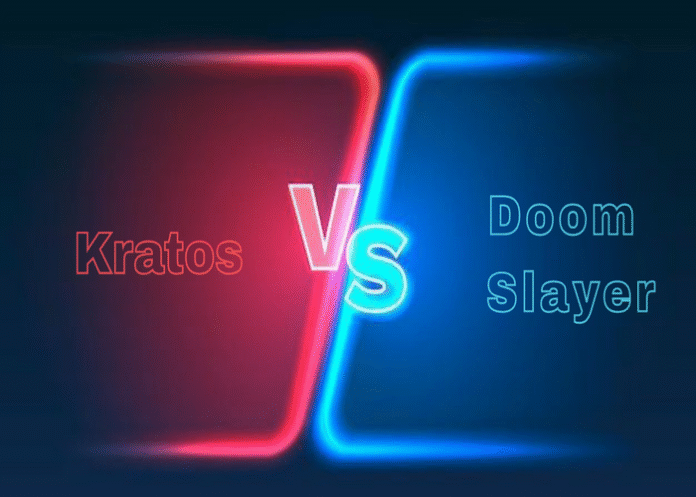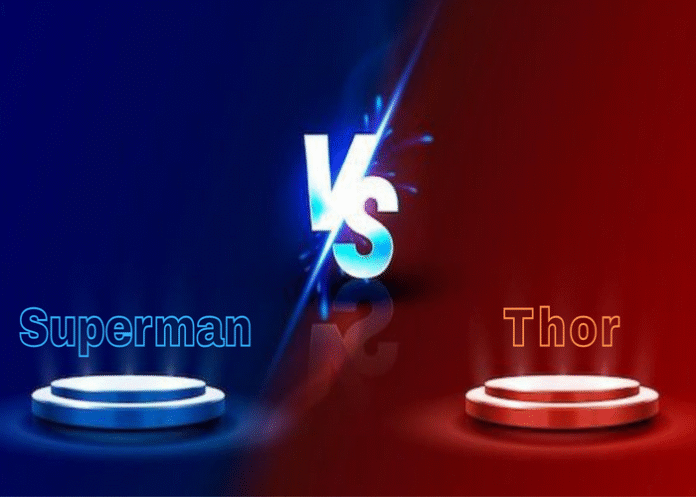
The Premise:
This isn’t about “who would win in a fight between Link and the Chosen Undead.” This is about legacy. Impact. Innovation. We’re examining how The Legend of Zelda and Dark Souls reshaped what action-adventure could be,from mechanics to storytelling, from fan culture to emotional experience. No console wars. No gatekeeping. Just raw analysis, a few laughs, and respect where it’s due.
Game Worlds & Storytelling: Whimsy vs. Woe
Zelda Accessible Wonder:
Zelda’s worlds are designed like playgrounds for myth-making. Whether it’s the windswept seas of Wind Waker or the free-climbing cliffs of Breath of the Wild, exploration is joyful, layered, and inviting. Dungeons serve as storytelling tools, built with narrative logic that reinforces the world’s structure. The storytelling mixes cutscenes, character dialogue, and environment-based lore, making it easy to follow yet deeply immersive.
Dark Souls Oppressive Immersion:
Lordran doesn’t invite you in,it dares you to survive. Its story is scattered across item descriptions and eerie architecture. If Zelda tells a fairy tale, Dark Souls makes you archaeologist of despair. It rewards patient observation, and every fog gate feels like the start of a thesis defense. But behind the despair lies depth: ancient curses, fallen gods, cycles of fire,all subtly embedded in the environment.
Clarification Corner:
Zelda’s “accessibility” doesn’t mean it’s a walk in the Kokiri Forest. Early Zelda titles and Master Mode challenges will humble even seasoned players.
Dark Souls’ difficulty isn’t cruel. It’s deliberate, designed to reward mastery and teach through failure. The world doesn’t hate you,it just doesn’t help you.
Gameplay & Innovation: Building vs. Breaking the Mold
Zelda Genre Foundation:
Without Zelda, there is no blueprint. Lock-on targeting in Ocarina of Time was revolutionary. Puzzle-solving, dungeon-based progression, item-based gating,it all started here. And Breath of the Wild blew up its own formula, reintroducing physics, chemistry systems, and sandbox freedom in ways that inspired Elden Ring and others.
Dark Souls Genre Evolution:
Enter the Souls-like. Deliberate stamina-based combat, death as a mechanic, interlinked shortcuts that fold the world onto itself like origami with a vendetta. Where Zelda is about fluidity and versatility, Dark Souls is about discipline and precision. One misstep, one greedy hit, and you’re fertilizer in Blighttown. Yet it’s so compelling, it spawned a subgenre.
Clarification Corner:
Zelda’s combat isn’t “basic.” Tears of the Kingdom lets you fuse meat to shields and launch bombs with homemade catapults. Versatile? Absolutely.
Not all “Souls-likes” are created equal. Some wear the skin but lack the soul. Dark Souls is still the gold standard.
Fanbases & Console Identity: Universal vs. Devout
Zelda Mainstream Marvel:
Zelda is Nintendo royalty. Each release becomes a cultural event. From Link’s Awakening to Tears of the Kingdom, fans span generations. Zelda speedrunners, theorists, and lorekeepers thrive across the internet. And yes, some people have definitely named their children “Link.”
Dark Souls The Cult Classic That Conquered:
Once considered niche, Dark Souls now commands a legion. Players bond over bonfire tales and PvP duels in the Kiln of the First Flame. “Git Gud” might be memed, but there’s camaraderie behind it. The game’s cooperative and competitive systems even turn invasions into impromptu gladiator matches.
Clarification Corner:
“Mainstream” doesn’t mean shallow. Zelda fans are just as obsessive about timeline theories and speedrun tricks as Souls fans.
“Dedicated” doesn’t mean toxic. Most Souls players are incredibly welcoming, offering guides, tips, and jolly cooperation,praise the sun!
Merchandising & Culture: Orchestras vs. Obelisks
Zelda Cross-Media Giant:
Concert tours? Check. Manga adaptations? Yep. LEGO collabs? Finally. There’s a Zelda-themed Symphony of the Goddesses and now even a live-action film in the works. From Triforce keychains to Link amiibo, the brand is vast.
Dark Souls Prestige Collectibles:
Dark Souls doesn’t have Happy Meals, but it has detailed statues, art books, and replica Estus Flasks that collectors drool over. Lore discussions and “no-hit” challenge runs are cultural phenomena in their own right. It’s not about saturation,it’s about depth.
Clarification Corner:
“Niche” means focused, not limited. Dark Souls merchandise is crafted with love for fans who crave authenticity and grit.
Zelda’s merchandise isn’t just quantity,it often sets the bar for quality in video game memorabilia.
Legacy & Influence: The Blueprint vs. The Revolution
Zelda The Genre’s Skeleton Key:
Zelda invented many of the bones on which action-adventure stands. Exploration, puzzle solving, story-driven progression,it created the language of the genre. Its fingerprints are all over gaming, from Okami to Darksiders.
Dark Souls The Genre’s Firekeeper:
Dark Souls didn’t just iterate,it redefined. It proved that players wanted challenge and ambiguity. Its DNA now lives in Hollow Knight, Nioh, Lies of P, and even Star Wars Jedi: Fallen Order. It showed that environmental storytelling could be richer than a thousand cutscenes.
Clarification Corner:
Zelda provided the foundational toolkit for action-adventure.
Dark Souls proved the toolkit could be reassembled in radical new ways.
Conclusion: Two Kings, One Throne Room
So,who reigns supreme?
Zelda is the genre’s heart: imaginative, warm, versatile. It taught us to explore, to solve, to dream.
Dark Souls is the genre’s soul: intense, unrelenting, profound. It taught us to endure, to think, to triumph through pain.
They aren’t rivals. They are pillars. Zelda lit the path. Dark Souls challenged us to walk it blindfolded with a broken sword.
Verdict:
If you value creativity, structure, and sweeping adventure,Zelda is your champion.
If you crave mastery, mystery, and immersive challenge,Dark Souls takes the throne.
But truly?
Action-adventure thrives because both dared to be different.
Key Points
- Combat Focus: Dark Souls emphasizes precise, tactical combat and subtle, fragmented environmental storytelling, while Zelda blends combat with exploration, puzzle-solving, and tool-based interactions.
- Difficulty Philosophy: Dark Souls thrives on punishing difficulty and learning through failure, whereas Zelda focuses on accessibility and adventure, offering puzzles and combat challenges that balance tension with fun.
- World Design: Dark Souls features a dark, interconnected world where unlocking shortcuts is crucial to survival. Zelda often uses themed regions and more traditional self-contained dungeons, though recent entries have expanded this with open-world design.
- Storytelling Style: Dark Souls uses cryptic lore and environmental clues, requiring players to actively piece together the narrative. Zelda presents clearer, more cinematic storytelling with iconic characters and mythic archetypes.
- Progression Systems: In Dark Souls, you earn experience (souls) through combat and risk losing them on death. Zelda progresses through new items, upgrades, and story milestones, often emphasizing player creativity.
- Tone and Atmosphere: Dark Souls maintains a bleak, oppressive atmosphere filled with decay and despair, while Zelda offers a more colorful, hopeful world that often includes uplifting music and whimsical elements.
- World Interaction: Zelda introduced physics-based systems and more recent emergent gameplay in titles like Breath of the Wild, where fire spreads, wind carries scents, and lightning strikes metal. Dark Souls is more about enemy patterns and environmental traps.
- Exploration Philosophy: Both games reward curiosity, but Dark Souls makes exploration perilous and uncertain, while Zelda encourages it with secrets, shrines, and puzzles that reward discovery and experimentation.
- Checkpoints and Tension: Dark Souls uses bonfires as checkpoints and havens, creating careful, strategic high-risk, high-reward tension. Zelda is more forgiving, offering frequent save points and health restoration mechanics.
- Player Role: In Zelda, you play as a chosen hero destined to save the world, often following a sense of linear or player-driven heroic progression. In Dark Souls, you’re an ambiguous undead struggling to find purpose in a fading, hostile world.
Fun Facts
- Miyamoto’s childhood inspired Zelda The original Legend of Zelda was directly influenced by creator Shigeru Miyamoto’s childhood adventures exploring caves, forests, and fields near Kyoto, Japan.
- Miyazaki’s language barrier shaped Dark Souls Hidetaka Miyazaki grew up reading Western fantasy novels in English, which he barely understood. This led him to imagine the gaps, inspiring the cryptic, fragmented lore style of Dark Souls.
- Zelda was Nintendo’s first save system The original Zelda (1986) was the first NES game to include a battery-powered save function, revolutionizing how players experienced progress.
- “Prepare to Die” almost didn’t happen Bandai Namco was hesitant to market Dark Souls as brutally difficult, but Miyazaki insisted, leading to the now-iconic “Prepare to Die” tagline.
- Breath of the Wild’s physics engine broke QA The game’s complex physics and chemistry systems caused so many unintended interactions during development that the quality assurance team joked they were testing a sandbox engine, not a Zelda game.
- Demon’s Souls was almost canceled Sony Japan thought Demon’s Souls was a disaster in early testing and refused to release it globally. Atlus picked it up, and its success paved the way for Dark Souls.
- Zelda’s name came from F. Scott Fitzgerald’s wife Miyamoto named the franchise after Zelda Fitzgerald because he thought the name sounded “pleasant and significant.”
- Dark Souls community uncovered a 10-year mystery Fans finally discovered the use of the pendant item from Dark Souls was, nothing. Miyazaki admitted it had no purpose but was added to confuse overanalyzing players.
- Breath of the Wild’s developers went camping for research To capture survival realism, developers camped outdoors, cooked meals, and studied how people interact with nature, influencing things like weather effects and cooking.
- Dark Souls speedruns inspired by game-breaking bugs The Souls community discovered bizarre glitches like “Kiln Skip” that let runners beat the game in under 30 minutes,some skips were so precise they needed frame-perfect timing.
- Zelda’s Ocarina of Time broke the mold for 3D action games Its “Z-targeting” system was inspired by a dolphin show, where trainers kept dolphins focused with visual cues. This tech later influenced games like Dark Souls.
- Dark Souls’ level design was inspired by a “locked door” moment Miyazaki once got stuck in traffic and imagined how amazing it’d be if he could suddenly access a hidden shortcut,a moment that inspired the genius interconnected map design.
- Zelda had a secret developer item left in-game In Wind Waker, players discovered Tingle’s Tuner, a quirky device originally meant for developers to test Game Boy Advance features during play.
- Dark Souls composer almost made it silent Composer Motoi Sakuraba was asked to keep most of Dark Souls quiet,ambient rather than orchestral,reserving music only for boss fights to emphasize isolation and intensity.
- Breath of the Wild’s cooking jingle was almost scrapped The joyful cooking tune became iconic, but some developers wanted to remove it for immersion. Fan reactions during test play saved the sizzle.

